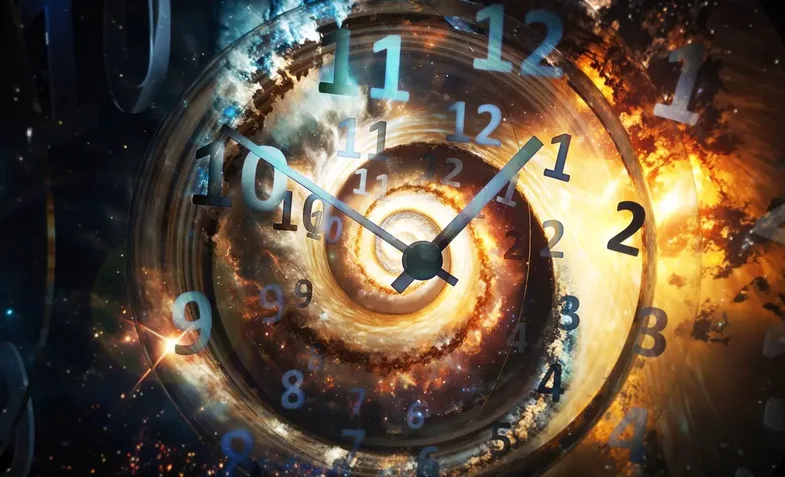
Time feels so precise that we rarely question its existence. The hours tick by, we feel them pass and we connect the events in a single timeline. However, in many areas of theoretical physics, the very notion of time as a forward-moving entity is under scrutiny.
Some researchers suggest that time may not exist in a fundamental way. They argue that our deep belief in a flowing "now" may be a delusion of perception.
Illusions of time in everyday life
Our daily lives depend on the past, present and future being clearly defined. We pay bills on time. We set the alarm to wake up in the morning based on the time.
"The equations of physics don't tell us what events are happening now," is a statement scientists make with trepidation.
This expresses the distance between what we feel when we think about time and what modern equations describe.
This perspective on the infinity of time has received support from many theoretical physicists, including Dr. Carlo Rovelli, a theoretical physicist and Professor Emeritus at the Center for Theoretical Physics (CPT) of Aix-Marseille University in France. Dr. Rovelli has developed approaches to loop quantum gravity that often leave out a global time parameter.
Time, physics and intuition
Our intuitions tell us that the present moment is distinct, while the future is perceived and the past seems fixed in time. However, Einstein's theories suggest that all moments can be equally real, leaving no universal "now".
Researchers have shown that gravity can slow down clocks. So, for example, time passes a little more slowly at sea level than at the top of a mountain because you are a little closer to Earth's gravity.
This is relative, meaning that time may pass differently depending on how fast you are moving or how close you are to a strong gravitational field.
Although we do not experience this effect in our daily routines, atomic clocks confirm it. Such experiments show that time intervals can vary depending on the speed and gravitational fields.
If we listen to everyday instincts, time seems to move forward, pulling events from the future into the past.
However, in general relativity, there is no internal rule that requires a universal flow. Instead, many physicists say that our minds add the experience of flow onto an otherwise static reality.
Some propose that what we call "the flow of time" arises from connections between physical objects. Our stories and memories can be responsible for creating a chain of events that we label "before" and "after."
Einstein and our understanding of time
Teoritë e Albert Einstein, veçanërisht teoria e tij e relativitetit, revolucionarizuan mënyrën se si mendojmë për kohën. Në teorinë e tij speciale të relativitetit, të publikuar në vitin 1905, ai propozoi se koha nuk është e njëjtë për të gjithë.
Për shembull, nëse po udhëtoni me një shpejtësi shumë të lartë ose afër një objekti masiv si një planet, koha do të duket se kalon më ngadalë për ju në krahasim me dikë që është më larg nga ndikimi gravitacional ose po lëviz më ngadalë. Ky koncept shpesh quhet “shtrirja e kohës,” dhe është provuar në eksperimente me pjesëza që lëvizin shpejt dhe satelitë GPS.
Mendjet njerëzore dhe ekzistenca e kohës
Disa ekspertë dyshojnë se një ditë do ta shohim kohën ashtu siç shohim monedhat: një mjet i zgjuar llogaritës, dhe jo një element themelor të realitetit.
Megjithatë, njerëzit do të vazhdojnë të jetojnë sikur çdo moment i ri ka vërtet rëndësi. Zemrat tona rrahin në sekonda, oraret tona varen nga orët, dhe ne ecim me rrjedhën e kohës.





